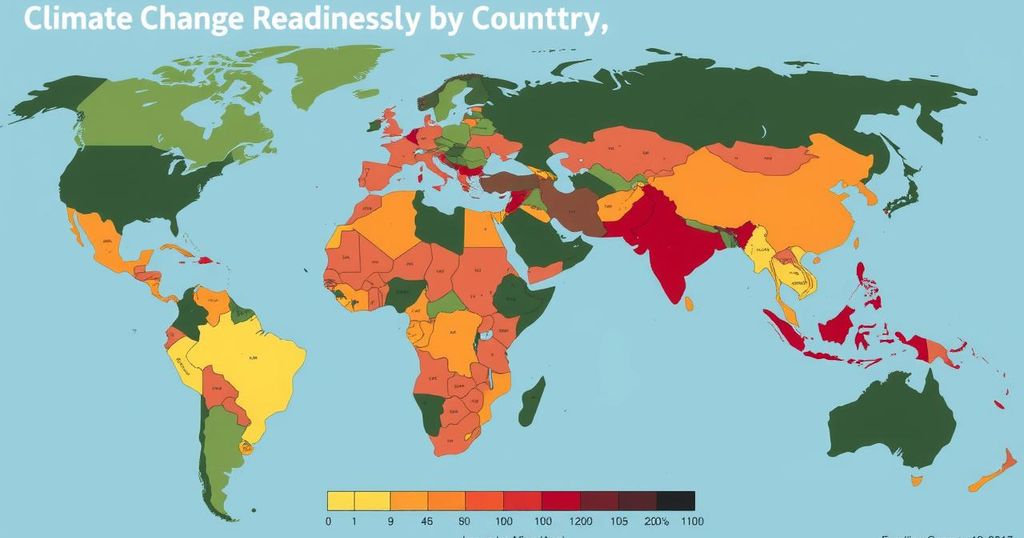Assessing Vulnerability and Readiness to Climate Change in Africa: The ND-GAIN Index 2021

The ND-GAIN index of 2021 reveals significant variations in Africa’s vulnerability and readiness for climate change, assessing their exposure, sensitivity, and adaptive capacity. Some countries with strong adaptive strategies exhibit resilience, while others face critical challenges due to socioeconomic conditions. Overall, targeted actions are essential to support the nations that are most vulnerable to climate impacts.
The ND-GAIN index evaluates the vulnerability and preparedness of African countries to climate change, highlighting significant variations across the continent in 2021. This index combines data on exposure to climate changes, sensitivity to these changes, and adaptive capacity, providing insight into which nations are at greater risk or better prepared. For instance, while some countries exhibit resilience due to robust adaptation strategies, others struggle with high vulnerability due to socioeconomic factors and environmental challenges. Understanding these disparities is crucial for targeted climate interventions and resource allocation to enhance resilience among the most affected nations.
Climate change is a pressing issue for many African nations due to their geographic and economic vulnerabilities. The ND-GAIN index offers a comprehensive assessment by categorizing countries based on their exposure to climate risks, their inherent sensitivity to those risks, and their capacity to adapt. Data derived from such evaluations is instrumental in recognizing which regions require urgent assistance to combat and mitigate the impacts of climate change, thus facilitating international cooperation and funding for climate resilience projects.
The ND-GAIN index serves as a vital tool for understanding the vulnerabilities and adaptive capacities of African nations to climate change. By emphasizing the need for tailored strategies to improve resilience, the index informs policymakers and stakeholders about effective resource allocation and climate action. It underscores the importance of addressing the unique challenges faced by each country to foster a more sustainable approach towards climate change in Africa.
Original Source: www.statista.com







